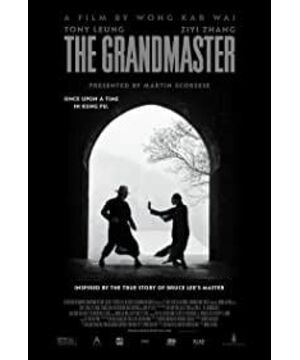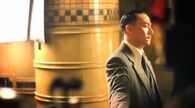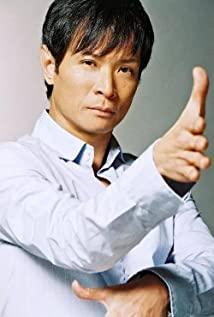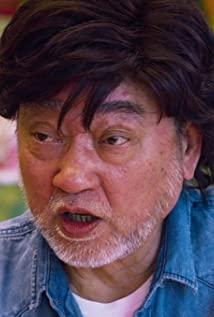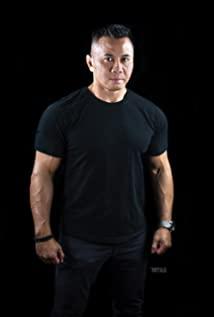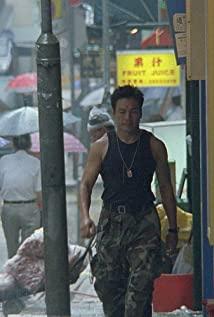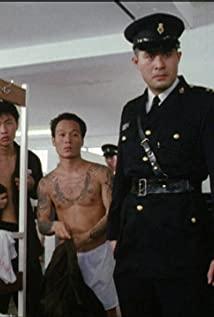A critic once said that every Chinese director wants to make a martial arts film. Indeed, as the most popular and popular part of market culture, martial arts is deeply rooted in the hearts of every Chinese. The culture of chivalry for the Chinese people is like the knight in Europe and the samurai in Japan. There is no such thing.
The great chivalrous man serves the country and the people. This is the commanding heights of chivalry in Jin Yong's writings, or since the Republic of China, the chivalry that the Chinese people have longed for can be born in the people. Guo Jing guarded Xiangyang with white dings, and then controlled the regular army. In reality, it is difficult to achieve, but it is in line with the needs of the Chinese people who were suffering from internal and external troubles during the Republic of China, were always in danger of subjugation, and had a high sense of nationalism. The chivalrous they need is a new type of leader who can cleanse the world, resist external humiliation, and be ashamed.
However, this is not a traditional Chinese chivalrous man. A chivalrous person, who violates the ban by force, takes life and death lightly, pays great attention to promises, repays confidants, and despises royal power. Xia is an individual, he is not restrained, he sees injustice on the road, draws his sword, has no plans of life or death, acts willful, often violates the law, and is tabooed by the state power. Therefore, chivalry is a compliment among the common people, but a derogatory meaning when it comes to the royal family.
As a unique category of Chinese films, martial arts films have appeared since the introduction of film technology into China. In the 1930s, the first martial arts film in my country, "Burning the Red Lotus Temple", was released in Shanghai. Ring the whole country.
Afterwards, due to the Anti-Japanese War and the Civil War, filmmakers were tossed and displaced, and it was difficult to find a hero on the screen. It was not until the 1950s and 1960s that martial arts movies appeared again in Hong Kong, which swept the island and continued the martial arts.
From the late 1960s to the early 1970s, a Chinese-American who grew up in Hong Kong successfully promoted martial arts films to the world through a series of kung fu films starring him. This person is called Li Zhenfan, and he gave himself a stage name called Bruce Lee. Bruce Lee is not only a talented actor, but also an excellent martial artist. He created a new fighting technique - Jeet Kune Do. He was internationally recommended as one of the seven martial artists in the world. The foundation of the Jeet Kune Do system he established came from the Southern Chinese style of boxing, Wing Chun, which he learned in Hong Kong when he was a child. His Wing Chun master was named Ip Man.
Ye Wen is a native of Foshan, and his ancestors were merchants. By the time of his father's generation, he had already accumulated a wealth of wealth, and he had no worries about food and clothing for several generations. Foshan is fond of martial arts. Huang Qiying, one of the Guangdong Ten Tigers famous in Guangdong and Guangxi at the end of the Qing Dynasty, was a native of Foshan. His son was Huang Feihong, who was well-known in the 1990s because of martial arts movies.
It is also because of this that there are many martial arts halls in Foshan. As a physical education institution, martial arts halls appeared in the society of the late Qing Dynasty. In the early years of the Qing Dynasty, in order to guard against the rebellion of the Han people, the Manchus issued a ban on martial arts, which prohibited the civilians from carrying weapons privately, and not gathering people to practice martial arts, because when gathering a crowd, there is a possibility that people will confuse them and then rise together. Many soldiers who are disarmed and return to the fields, in their spare time, cannot bear to let go of the martial arts skills they learned when they were in the army. Most of the fighting in the army uses cold weapons, and there is very little content about unarmed hands, because weapons have become forbidden. The cold martial arts transitioned to hand-to-hand combat, forming the prototype of modern martial arts, and it was secretly spread among the people in the form of father and son masters and apprentices. In this way, at the end of the Qing Dynasty, with the invasion of the Western barbarians, the government's ruling ability was no longer stable, and civilian bandits were rampant. In order to protect themselves, many people joined the ranks of martial arts. This kind of organization appeared in various places, spread all over the country, and the practice of martial arts changed from underground to ground. There are also regions in the country that are famous for martial arts. The famous one in the north is Cangzhou, which is known as "the dart does not call Cang". Cangzhou is located in the Central Plains. In the Song Dynasty, it was the destination of the army and the distribution. Since ancient times, the folk customs are sturdy, the martial arts practitioners are like clouds, the guards sing darts, and they are in the dangerous forest to warn the coveted robbers. At the same time, they are also showing good compromise. The town shouting dart has an advertising component, and it is the name of the dart board. Whenever the dart team passes Cangzhou, they try not to stop, and they dare not sing dart casually, because if one is not careful, it will attract the challenge of local martial artists.
Foshan has the same status as Cangzhou in the southern martial arts, but it started late. It became an important martial arts town in the early Qing Dynasty. The Qing Dynasty ruled the Central Plains with ethnic minorities. There were many Han people who opposed it. Guangdong and Guangxi were located in the south of the country. Taiwan, which was isolated overseas under the leadership of Zheng Chenggong, could be crossed with a reed. In the early years of the Qing Dynasty, it naturally became a gathering place for anti-Qing patriots, many of them. They are all officers of the former Ming army, and the atmosphere of martial arts practice in the local area is strong.
Before Yip Man was born, in an ancestral hall in the west courtyard of his ancestral home, there was a master teaching martial arts, whose name was Chen Huashun, and the boxing he taught was Wing Chun. Different from today's martial arts, which are mostly taught outdoors in parks and other places, at that time, the teaching of boxing had to "cover the roof with tiles and surround it with four walls". This is to retain the old mystery of martial arts, and at the same time, it is also in order to "do not teach the six ears". Fear of things being learned by irrelevant people. Therefore, the first thing to open a martial arts museum is to have a suitable house. Many martial artists are from the bottom. Because of the prohibition of martial arts in the early Qing Dynasty, martial arts were confined to remote villages. You have to rent a house, but where does the money come from, you have to rely on people to clear it up. At that time, some martial artists who had stood their ground would engage in a kind of squatting industry in their spare time. , Introduce the new boxer to the big merchants who like martial arts, and the merchants will fund the newcomer to set up a martial arts hall. Of course, the newcomer can't stand in the way of the introducer, and he will be honored on time in the future, and the investment of the businessman is also required to return , or need to take care of the home for him, or help him deal with business opponents, or even participate in illegal activities. Therefore, from the beginning of the development of martial arts, there are evil products that tend to be inflamed.
Professor Chen Huashun's Wing Chun belongs to the southern boxing method. The south in the traditional Chinese sense refers to the south of the Qinling and Huaihe River. This is the division of the region by the agricultural society's resettlement climate. character. Boxing in the South and the North is quite different. The southerners are short and sturdy, and the waterways in the southern border are vertical and horizontal, so there are many opportunities to travel by boat, so the southern style of boxing focuses on hard bridges and hard horses, and the bottom plate is stable and short, and the northerners are tall and majestic. , The northern school of martial arts requires that the long attack is far, the strength is long, and the movements are erratic. In 1928, Nanjing established the Central Martial Arts Center, held the national martial arts exam, and each province sent representatives to compete in the form of a ring. When a southern boxer met a northern boxer, he would be defeated with one move. The physical advantage of the northerners was beyond this advantage. The boxing technique he developed has won an overwhelming victory. Therefore, the various forms of boxing that were trapped in Lingnan disappeared without a trace after crossing the Yangtze River. Nanquan could not be passed on to the north. After this battle, Beiquan despised the south, and later became famous in martial arts.” Five tigers descend to the south of the Yangtze River".
Among the Nanquan that is not well-known, Wing Chun is even less well-known. Its founder is Yan Yongchun, who is a girl. When she was young, she learned martial arts from the five masters of Mount Emei. On the basis of Tai, imitating the artistic conception of the battle between snakes and cranes, he founded Wing Chun, which was later passed on to his husband, a scholar surnamed Liang. Her husband gave this boxing method to his nephew, and it gradually multiplied. By the time Chen Huashun was the fifth generation Now, Chen was originally a money and silver guy in a pawnshop, nicknamed "Looking for Qian Hua". He learned Wing Chun under Liang Zan, and later opened a school in Ye's old house to teach apprentices. Because of the strange posture of this boxing, it is difficult to move forward. The two knees clasped the gear, called the two-character sheep-clamping horse, and the master was a woman, and there were not many people who learned it. Ye Wen often went to the boxing gym to watch people practice martial arts since he was a child. He is also the beloved son of the owner. Without any scruples, he gradually fell in love with Wing Chun. At the age of seven, he officially worshipped Chen Huashun as his teacher. Later, when the Ye family's property was destroyed by the war, Ye Wen moved to Hong Kong and opened a museum on the roof of the Hong Kong Federation of Trade Unions.
The real fame of Wing Chun is still thanks to Bruce Lee. With this flamboyant martial artist, he became famous all over the world through the screen. Wing Chun became popular all over the world more than 100 years after its establishment. Besides, it is the most practiced Chinese martial arts in the world.
When Wong Kar-wai decided to shoot "The Grand Master", which tells the story of Ip Man's life, there were already two "Ip Man" Jewels by Ye Weiping. In fact, "Ip Man" is a movie full of craftsmanship, the plot structure is quite satisfactory, the old routine and the old mode, but it has made some efforts to mobilize the audience's national feelings. Being solid is something that Chinese films that are desperate for quick success are not willing to do it. Especially the wonderful fights of Donnie Yen's fists to the flesh are really addicting.
Played by Tony Leung, who has never studied martial arts, as Ye Wen, he naturally cannot surpass Ye Zuo in action. You can only work hard on the plot, and other directors can also expect the same, and you can only put a big question mark in your heart for Wong Kar Wai. For the audience who know Director Wang, it goes without saying that Wong Kar-wai doesn't tell stories. His films focus on the expression of emotions, and what he wants is the sympathy and resonance of the audience. What kind of kung fu martial arts film will such a director make?
The filming of this film hired Zhang Dachun, a Taiwanese writer who is familiar with the history of the Republic of China, and Xu Haofeng, who studied the history of martial arts in the Republic of China and made movies himself, as screenwriters. It is still not reassuring. The screenwriter of "Blueberry Night" was used in "Eight Million Ways to Die". The famous novelist Lawrence Bullock of Matthew Scudder, a private detective wandering the streets of New York City, was successfully portrayed in it, and the result was still a cloud of fog.
However, this time it was really good. Makes people feel amazing. The delicate props can be seen from the research efforts. The exquisite pictures are like Western oil paintings depicted in warm colors. The close-up of the delicate details and the martial arts design of each move are gorgeous and elegant, and the ancient charm is long. It also shows that the actors have been subjected to strict Compared with the previous works, the context is clear. Of course, it still retains Wong Kar-wai's strong personal symbols, flashbacks, freeze-frames, flashbacks, and multiple narrative lines interspersed, which is understandable.
The film is a fictional competition, which is a competition that made Ye Wen famous. A martial arts leader tried to use this as a means to promote the rise of young people he was optimistic about before retiring. The young man is Ye Wen, and the martial arts leader is Gong Baosen, all of them are real figures in history.
Gong Baosen, also known as Gong Baotian, is the successor of the Northern School Yin Style Baguazhang. His boxing was founded by the Manchu court guard Yin Fu. Yin Fu's master was Dong Haichuan, the famous Bagua Zhang master. Dong Haichuan's origin has not been verified, and there are various theories. Before he became famous, he served in the palace of the Emperor Guangxu's biological father, Duan Wang, so there are rumors that he was an eunuch, but this is also impossible to verify. He became famous in a competition that took place in the palace. It was Yang Luchan, who was already famous in the capital and became a guest of the palace. Yang Luchan has been fond of martial arts since childhood, and later learned a mysterious boxing method from his family's ancestors from Chen Changxing, a boxer in Chenjiagou, Henan. Yang Luchan's martial arts skills came out of the blue, and he swept the invincible hands in Beijing. He was nicknamed "Yang Wudi". After he mastered the boxing method he learned from the Chen family, he named it "Taijiquan". Yang Wudi's name quickly spread to the ears of Duan Wang, who was fond of martial arts, and he embraced it. On this day, Duan Wang set up the ring in the courtyard and asked his martial masters and Yang Wudi to make a move, and to see Yang's kung fu as believing. Yang Wudi is indeed invincible. After a while, the martial masters of the palace were defeated one by one, which made Duan Wang lose face. Dong Haichuan was helping to serve the guests at this time, and Yu Guang watched Yang Luchan perform his superb skills in the ring. , I don't know if it was because of the itchiness, I suddenly walked up to the prince and asked to try it out. Duan Wang was an amiable person. Seeing that Dong was dressed as a servant on duty in the mansion, he still agreed. Dong Haichuan played with Yang Luchan and applied what he had learned in his life. It was really a battle between dragons and tigers, the audience was dazzled, a cup of tea, the two stopped fighting, and went down hand in hand. From then on, they cherished each other and became Mo Ni, the prince was overjoyed, and asked Dong Haichuan What he practiced, Dong said it was called Baguazhang. Since then, Dong Haichuan left the palace and started apprenticeships with the support of Duanwang. He has learned like clouds and taught more than 100 apprentices in his life. Six famous people, the first one is Yin Fu.
Dong Haichuan's Bagua Palm has only one style, "Chuan Palm". "Chuan" means to wear. This one wears the palm of the hand to give birth to a single and a pair of palms. One life is two, two begets four, and the reproduction goes on and on. There is no end to it. And Shi is a great and good master, so his disciples get different things. Yin Fu's Baguazhang, the palm shape is that the four fingers are close together and the fingertips are slightly upturned, and the big finger stands vertically with the four fingers, which is called "ox". Tongue palm". Yin Fu served as a bodyguard in the palace, and taught the weak Guangxu Emperor to practice Bagua Palm. Yin Fuchuan has many disciples, and the eldest disciple is Ding Lianshan, a reclusive chef played by Zhao Benshan. Ding Lianshan was wanted because he had killed people in the Northeast, and he disappeared without a trace. For a martial arts sect to gain a reputation, it must have the support of an outstanding person, not only in kung fu, but also in all aspects.
Gong Baosen is undoubtedly such a character. He received Yin Fu Zhenzhuan, and his kung fu is extremely high. He is less than 1.6 meters tall and moves like a ghost. In 1922, Li Cunyi of Xingyiquan established the Chinese Samurai Association in Tianjin and joined Gong Baosen of Baguaquan, Li Shuwen and Baguazhang. In the movie, Gong Baosen mentioned Li Cunyi as senior brother, but he made a mistake. Li Cunyi's disciple Shang Yunxiang exchanged arts with Gong Baosen's uncle and Cheng Tinghua, Dong Haichuan's high apprentice, and called each other brothers. .
Xingyiquan is one of the three major internal boxing styles that originated in the late Qing Dynasty along with Taijiquan and Baguazhang. He was good at one-handed Bengquan and ran rampant in the Zhili area without any defeat. Later, because he missed his skills, he killed the opponent and was arrested by the government. He was sentenced to three years in prison. Duan Wang's good prince quit his job, and he was involved in the three religions and nine streams, which was inconsistent with the rationale. Guo Yunshen practiced hard in prison. Because he was wearing a shackle, he should take a big step forward when fighting Beng Boxing. He was forced to change it into a small step. When he was released from prison, he still competed everywhere. The boxing was changed to half-step collapse boxing, and it gained the reputation of "Guo Yunshen half-step collapse boxing to conquer the world". Later, Guo swelled as his fame increased, and was ready to enter Beijing to compete with the two masters of Tai Chi gossip. Considering that Yang Luchan coached the Shanpu Camp, went in and out of the palace, and had a solid background, Guo Yunshen first found Dong Haichuan's residence after arriving in Beijing, and asked for advice. There was a lot of nonsense. One night, Guo was drinking tea at his residence in Beijing. There was a knock on the door. After he answered the door, he saw no one. He paced back to the table angrily. Before he could sit down, there was another knock on the door. He stepped over and kicked the door open. As before, the door was empty. When he returned to the house this time, he saw the table. Next to the tea bowl was a post of worship, which wrote that Dong Haichuan was returning to worship. Guo Yunshen was shocked, because in addition to the door, this room only had a rear window facing it, and the doors and windows were just a short distance away. The window got in, and a letter was silently placed on the table. In an instant, it moved like a ghost. Guo Yunshen was ashamed of himself, only to know that there is a heaven outside the sky. Later, Dong Haichuan, Yang Luchan, and Guo Yunshen became friends, and they studied martial arts together. They found that the three styles of boxing were similar in art, and had a proven connection with Taoism, so they called Bagua Taiji shape and meaning as Neijiaquan to distinguish the outside world. He belongs to Shaolin, but belongs to the Wudang School.
It is not known whether Gong Baosen practiced Bagua and Xingyiquan. In the movie, it is said that he combined Bagua and Xingyi, which is a fabrication. Gong once participated in the revolutionary party aiming to overthrow the Manchu Qing Dynasty, and among the Tartars expelled also included his own master, Yin Fu was a Manchu. Every revolution in China since modern times has broken the old framework of social relations.
Martial arts entered the Republic of China, and the value doubled. In order to strengthen the country, the new society launched one movement after another, shouting loud and attractive slogans every time, thinking that the reform of the country could be achieved overnight, martial arts became a kind of physical fitness, and got rid of the national salvation sports that were bullied by outsiders. Governments at different levels have vigorously promoted them, and various sports clubs, Jingwu, National Martial Arts, and martial arts clubs have sprung up. Those who practice martial arts are no longer called discriminatory martial artists or martial artists, but are honored as martial artists, national martial artists, and home. These campaigns come and go quickly, and in a few days or months, new campaigns will be replaced without the effectiveness of the propaganda. Wushu also encountered this kind of embarrassment. Fortunately, it is recognized as the quintessence of the country and is a national treasure. In the years of high nationalism, it is not a problem to survive. All kinds of martial arts halls withered, and the warriors threw themselves into the door of the wealthy merchants. Some famous ones were hired by the dignitaries who liked martial arts to teach their children, act as bodyguards, and even perform in front of the hall like an actor when the master is interested. Huo Diange, a boxer, was invited by Puyi to be a bodyguard. Zhang Ce, a master of back boxing, went out to Fengtian to teach Zhang Zuolin's two sons, and Liu Fengchun, a Taizu boxer, coached his own troops in Cao Kun's barracks. In 1927, Gong Baosen was hired as a bodyguard by the Fengtian warlord Zhang Zuolin, and took over as Zhang Ce, who had resigned from his hometown due to aggravated smoking addiction. Later, in the Huanggutun Incident, Zhang was killed by the Japanese Kwantung Army. Gong Baosen returned to his hometown of Qingzhou, Shandong Province. He taught boxing for a living, and was later invited by Zhang Xiangwu, who was stationed here, to teach the troops. Died in 1943.
Gong Baotian never went south in his life, and he would never meet Ye Wen. He was selected from among the many warriors in the Republic of China, and he had a entanglement with Ye Wen. What is the significance, because the characters are not fictitious, but a fictitious story is installed to make him. People can't figure out the intention.
Ye Wen had no record in his life. It is rumored that when he was young, he used his fingers to knock the drum of a police revolver off the shaft of the gun. The owner of the gun was a friend of his father's police officer. Wen's finger strength is amazing, but his finger strength does not represent his skill level. Before Bruce Lee, Wing Chun became famous in Hong Kong, relying on Huang Chunliang, the first disciple of Ip Man. Huang is known for his good hands, and it is said that he has fought all over Hong Kong and Kowloon. , has taught hands more than 270 times, and is known as the "King of Talking Hands". Although Bruce Lee worshipped under Ip Man, his kung fu was taught by Professor Huang Chunliang. Ip Man died in Hong Kong in 1972.
The dialogue in the film is full of Zen, and may be influenced by Xu Haofeng. The imprint is obvious. The three-level realm of martial arts of "seeing yourself, seeing the heaven and earth, and seeing all beings" has a distinct Zen theme. Wushu should be related to Taoism in essence. related.
View more about The Grandmaster reviews


